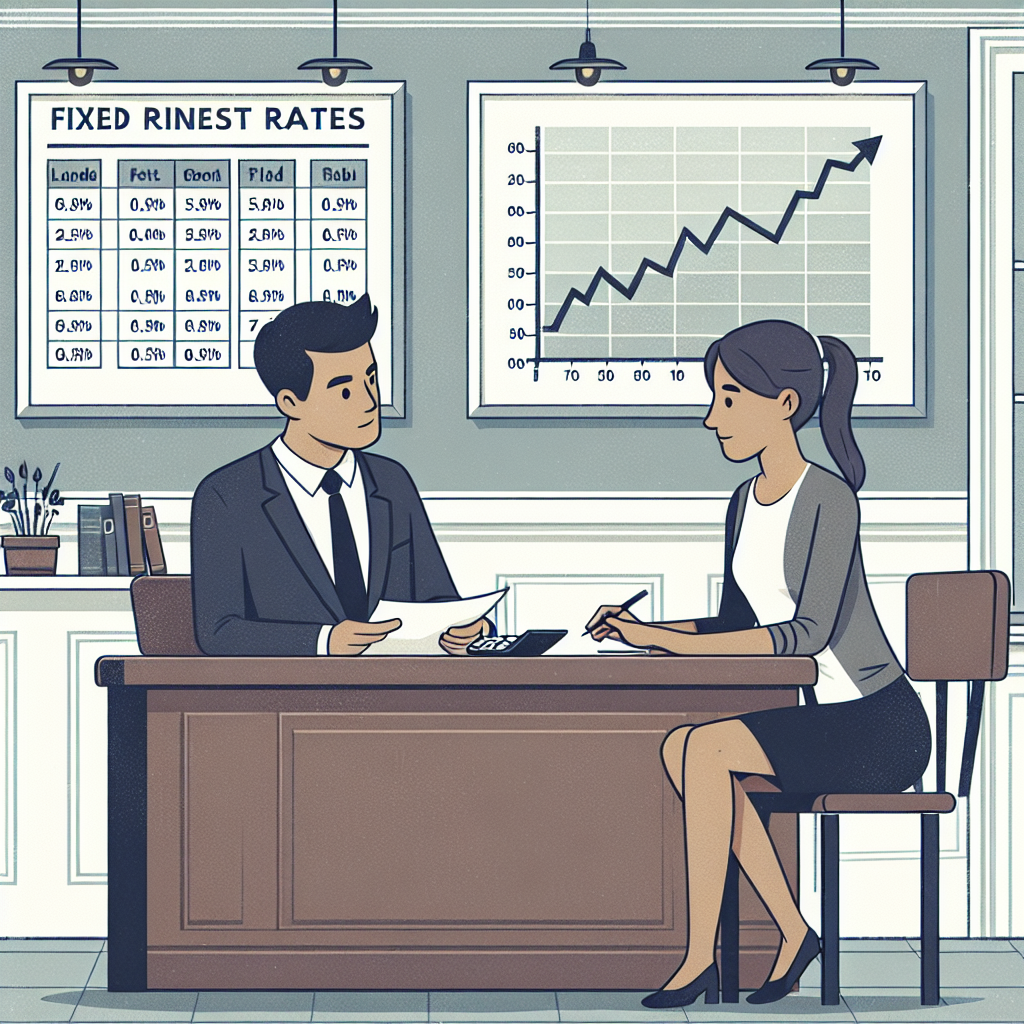
Fixed rate interest rates
The Stability of Fixed Rate Interest Rates in a Dynamic Economy
In the world of finance, understanding different types of interest rates is pivotal for making informed choices regarding loans and investments. One of the most prominent types of interest rates is the **fixed rate interest rate**. This article explores the concept of fixed rates, how they compare with other types of rates, and the impact they have on borrowers and investors.
What are Fixed Rate Interest Rates?
A **fixed rate interest rate** is a type of interest rate that remains unchanged throughout the duration of a loan or investment. Unlike variable rates that can fluctuate based on market conditions, fixed rates offer stability and predictability in financial planning. This can be particularly advantageous for borrowers who want to avoid unexpected increases in their monthly payments.
The Advantages of Fixed Rate Interest Rates
- Predictability: Fixed rates provide certainty in budgeting since the payment amount remains constant over the loan term.
- Protection Against Rate Increases: Borrowers are shielded from rising interest rates in the market, allowing them to lock in a lower rate.
- Long-Term Planning: Knowing the exact amount to pay each month aids in long-term financial planning and investments.
- Easier Comparison: Fixed rates make it easier to compare different loan products since the terms are consistent.
The Disadvantages of Fixed Rate Interest Rates
- Less Flexibility: If market rates decrease, borrowers may miss out on potential savings by being locked into a higher rate.
- Potentially Higher Initial Rates: Fixed rates can be higher than initial variable rates, meaning higher payments at the start of the loan.
- Prepayment Penalties: Some fixed rate loans come with penalties for paying off a loan early, limiting refinancing options.
Fixed vs. Variable Rate Interest Rates
When considering takes on interest rates, it's crucial to comprehend the differences between fixed rate interest rates and variable rates:
| Feature | Fixed Rate Interest Rates | Variable Rate Interest Rates |
|---|---|---|
| Stability | Stable and predictable | Can fluctuate based on market conditions |
| Initial Rate | Typically higher | Can start lower but may increase |
| Long-Term Costs | Predictable total interest over the loan term | Can vary, leading to uncertainty |
| Best For | Long-term borrowers seeking predictability | Short-term borrowers with risk tolerance |
Who Should Consider Fixed Rate Interest Rates?
Fixed rates can be a smart choice for various types of borrowers, including:
- First-Time Homebuyers: Those entering the housing market for the first time may benefit from the reliability of fixed payments.
- Long-Term Borrowers: Individuals or businesses planning to hold a loan for several years can gain considerable stability.
- Those on a Tight Budget: Fixed rates provide peace of mind for borrowers who may find increased payments unmanageable.
The Role of Economic Cycles
The decision to opt for fixed rate interest rates often coincides with economic conditions. During periods of low interest rates, securing a fixed rate can yield significant savings. However, in times of economic uncertainty, rates may fluctuate significantly. Understanding broader economic cycles can help borrowers and investors make timely decisions.
“In uncertain economic times, a fixed interest rate provides safety and assurance.” - Financial Expert
The Impact of Inflation on Fixed Rates
Inflation is another element that significantly influences fixed rates. When inflation rises, lenders may increase fixed rates to compensate for the decreased purchasing power of money over time. Borrowers locked into a low fixed rate can benefit from inflation, as their payments remain stable even as the value of money changes.
How to Find the Best Fixed Rate Interest Rates
Finding the best fixed rates involves several key steps:
- Research Lenders: Start by researching various banks and financial institutions to compare their fixed rates.
- Check Your Credit Score: A higher credit score can lead to more favorable rates. Ensure your credit is in good standing before applying.
- Consider Loan Terms: Understand how different loan terms (e.g., 15 vs. 30 years) affect your interest rate.
- Negotiate Terms: Don’t hesitate to negotiate with lenders to secure a better rate.
The Future of Fixed Rate Interest Rates
As the economy continues to evolve, the future of fixed rates will likely adapt to changing financial landscapes. New financial instruments and innovations may alter the fixed rate market, but the fundamental benefits of predictability and stability are likely to remain appealing to borrowers.
Conclusion
In summary, **fixed rate interest rates** present both advantages and disadvantages that must be weighed carefully. For certain individuals and circumstances, they provide a reliable strategy for financial planning, enabling borrowers to secure a known payment structure amidst the volatility of the financial world. By keeping informed and considering both fixed and variable options, borrowers can make the best choices tailored to their needs.
```By Guest, Published on July 22nd, 2024